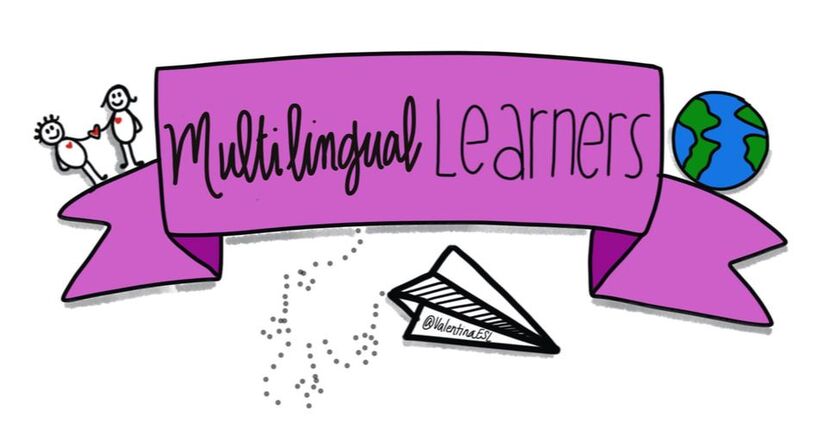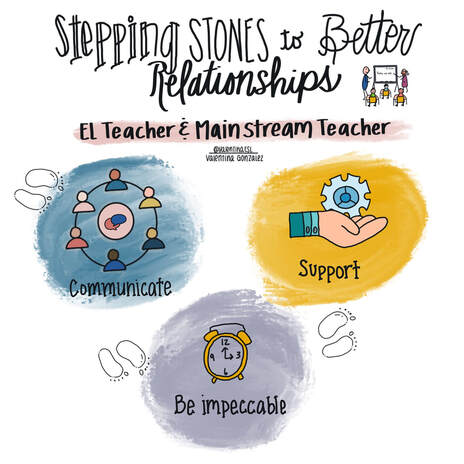|
When I left the comfort of my own classroom to become an ESL teacher, I didn’t know that I would have to become intentional about building relationships with the mainstream classroom teachers I worked with. But I learned quickly. Healthy, productive relationships between mainstream teachers and ESL teachers don’t happen on their own magically. Like most relationships, thought, planning, and careful execution takes place for a truly happy relationship to develop. Over the years, here’s what I learned as an ESL teacher about creating relationships with mainstream teachers. 1. Communicate
What I mean here is not limited to sharing data and information about English learners (ELs) that you both serve, but also about talking casually with one another. Start with introducing yourself. I suggest not in an email. Emails are less friendly than face to face. If possible, walk over to the teacher’s classroom before the school year begins and introduce yourself. Smile and start getting to know one another as people. For example, here’s how it might sound, “Hi, I’m Valentina. I’ll be working with your team this year as the ESL speciality teacher. I just wanted to stop by and say hello. I’m new to the district. Tell me about yourself.” Beyond initial introductions, let colleagues know how to reach you. Some will need constant support while others will want more of a consultation style. It helps to find out each person’s preferred means of communication (email, text, face-to-face, online platform, etc.). From there take time to check in on colleagues using their preferred means. Some ESL teachers find that sending a weekly or monthly newsletter is effective. Michelle Gill, an EL Leader, creates a monthly newsletter using a 1-5-15 format on Smore. These typically include:
2. Be impeccable with your word This is a really big one. Think about a personal relationship you have perhaps with a great friend. What are the qualities? Maybe...You can count on them, you trust them, they are authentic. On the other hand, think about a relationship you have that’s not so great. It’s probably just the opposite. Trust is lacking, you can’t count on them, there might be deception, etc. As we work with mainstream teachers, we can apply the same principles to create great relationships.
Three things to avoid completely are:
3. Support If possible become an essential part of a grade level team. I mean, go to planning meetings and know the curriculum. During the planning meeting, participate by sharing resources and strategies that support language development. For example, you might bring visuals and vocabulary, and sentence stems that correlate with the learning objectives being planned for. You may also bring along matching books, poems, and additional reading materials. Doing this will demonstrate your credibility with language and content. Basically you want the team to miss you when you can’t attend a meeting. Some ESL teachers are spread very thinly in their districts. If you are unable to attend planning meetings, you can provide language supports digitally or through email. Supporting mainstream teachers means working alongside one another. If the mainstream teacher feels that you are a partner, the relationship will grow. But if they feel they are doing more work than you, resentment will grow. Here are a few more ways to show support:
The bottom line is that all relationships take time and effort. Don’t give up. Instead give yourself and your colleagues grace. ❤️ Love, Valentina
2 Comments
Lora
12/12/2020 02:51:24 pm
Love this article! It’s so important to foster relationships between co-teachers. This article is a great conversation starter for teachers on my campus.
Reply
Sarah
5/26/2021 10:00:59 am
Thank you for this article! I have recently discovered your blog and it has become a favorite lunchtime read.
Reply
Your comment will be posted after it is approved.
Leave a Reply. |
Categories
All
|


 RSS Feed
RSS Feed
